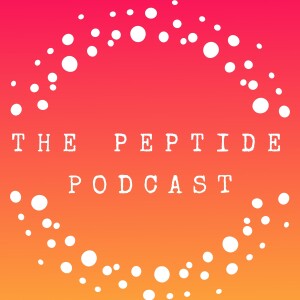
How to Boost Your Immune System and Thymosin Alpha 1
 2023-04-20
2023-04-20
Today we're going to talk about things you can do over time to help boost your immune system and thymosin alpha 1 (TA1), a peptide therapy used for immune support.
Most of us know that there are certain things we can do to limit our exposure to germs that can make us sick. Things like washing our hands with soap and water or hand sanitizer and keeping high-touch areas clean can limit your exposure to germs.
But there are other things we can do over time to boost our immunity and create a stronger immune system.
What works to boost our immune system?
A balanced approach to your diet is important. Your meals should include a variety of fruits and vegetables, whole grains, and healthy protein sources (legumes, nuts, fresh fish, low-fat dairy, or lean cuts of meat).
Try to avoid refined sugars, which are usually found in processed foods. These include foods like packaged snacks, candy, soda, and cereals. These foods can increase inflammation and can dampen a strong immune response. They can also leave you feeling tired and have been linked to weight gain, type 2 diabetes, and heart disease.
Sometimes it can be difficult to tell if food is processed. But reading the ingredients can help if you're not sure. If any ingredient listed on the label isn't used in kitchens, it's probably processed food. Examples include fructose, high-fructose corn syrup, maltodextrin, and lactose, to name a few.
Clinical studies have shown that physical activity affects the immune system. In fact, regular exercise can boost the immune system, provide additional energy, promote restful sleep, and help lower your risk of type 2 diabetes, heart disease, and cancer. It can even help reduce chronic pain and stress, which may help improve your mood.
But how often should you exercise? The American Heart Association recommends weekly 150 minutes of moderate aerobic activity (e.g., water aerobics, dancing, or gardening) or 75 minutes of vigorous aerobic exercise (e.g., running, swimming laps, or jumping rope). It also recommends two days of muscle-strengthening activities like resistance or weight training, yoga, or pilates.
It's recommended that older adults should also include balance training in their exercise routines (e.g., tai chi, heel-to-toe walking, or balancing on one leg). These exercises improve coordination and stability and may help prevent falls.
Fun fact: Your immune system is activated during sleep. But how much sleep do you need?
Individual sleeping requirements vary depending on age, overall health, medications, underlying sleep disorders, and lifestyle. For example, the National Sleep Foundation recommends that adults ages 18 to 60 get 7 or more hours per night while adults 61 to 64 get 7 to 9 hours per night. If you're 65 years and older, getting 7 to 8 hours of sleep per night is recommended.
Not getting enough sleep may increase inflammation or decrease your immune response. Lack of sleep can also worsen or lead to chronic diseases like depression, diabetes, high blood pressure, heart disease, stroke, and unintentional weight gain.
Excessive alcohol consumption can weaken the immune system. Alcohol can damage the lining of the gut, causing inflammation, infections, and stomach ulcers.
A heavier body weight can dampen the immune system and increase the risk of infections. This is because there are fewer infection-fighting immune cells, and excess body fat contributes to inflammation.
What peptide may help to enhance immune function?
Thymosin alpha 1 (TA1) has been shown to enhance the function of certain immune cells. TA1 has been shown to exhibit antibacterial and antiviral properties, suppress tumor growth, and promote wound and tissue healing.
TA1 is used for clinical conditions where immune support is needed. Zadaxin is a TA1 peptide evaluated and approved in 30 countries for treating hepatitis B & C, HIV, and AIDS. It's also used with chemotherapy for certain lung, liver, and skin cancer patients. In addition, it is used in people with DiGeorge syndrome and has shown promising results in treating Lyme disease.
Currently, the medication is in Phase III trials for treating hepatitis C and Phase II trials for hepatitis B in the United States.
How do I take TA1?
The peptide injection is subcutaneous (injected into the fatty tissue) once daily. For viral infections, treatments usually last for 2 weeks. But, depending on what you're treating and how serious your infection is, treatment could last 3 months or more. The dose depends on why you're taking it.
What are the possible side effects of TA1?
Possible side effects include redness, itching, or swelling at the injection site. As always, you should tell your healthcare provider about any side effects you experience.
Thanks again for listening to The Peptide Podcast, we love having you as part of our community. If you love this podcast, please share it with your friends and family on social media, and have a happy, healthy week!
Pro Tips
We're huge advocates of using daily collagen peptide supplements in your routine to help with skin, nail, bone, and joint health. But what do you know about peptides for health and wellness?
Giving yourself a peptide injection can be scary or confusing. But we've got you covered. Check out 6 tips to make peptide injections easier. And, make sure you have the supplies you'll need. This may include syringes, needles, alcohol pads, and a sharps container.
More Episodes
 2023-11-23
2023-11-23
 2023-11-09
2023-11-09
 2023-10-26
2023-10-26
 2023-10-19
2023-10-19
 2023-10-12
2023-10-12
 2023-08-17
2023-08-17
 2023-08-03
2023-08-03
 2023-07-27
2023-07-27
 2023-07-06
2023-07-06
 2023-06-29
2023-06-29
Create your
podcast in
minutes
- Full-featured podcast site
- Unlimited storage and bandwidth
- Comprehensive podcast stats
- Distribute to Apple Podcasts, Spotify, and more
- Make money with your podcast
It is Free
- Privacy Policy
- Cookie Policy
- Terms of Use
- Consent Preferences
- Copyright © 2015-2024 Podbean.com





